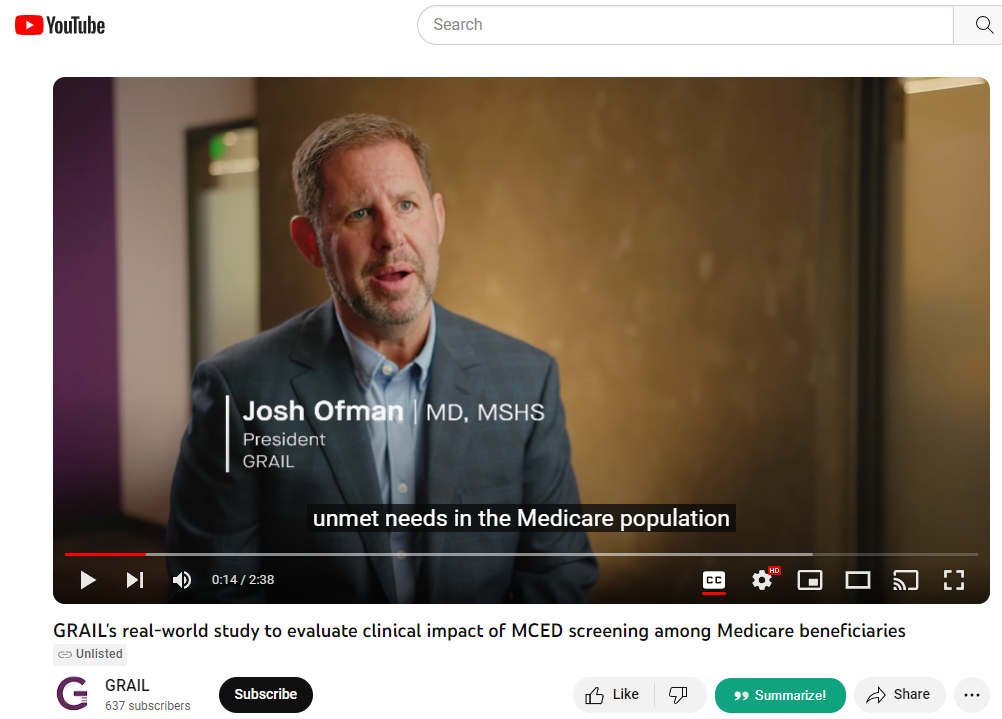GRAIL announces its IDE (investigational device exemption) for the GALLERI test in Medicare-age patients. See a detailed press release accompanied by a two-minute YouTube video.
Find the press release here:
Find the video here:
https://www.youtube.com/watch?v=nksTA6B2w-o
Find a news report at Clinical Trials Arena here. (By the way, CTA is an interesting news source).
UPDATE: See also press from ACS here.
The press release is pretty long, at 1100 words.
Find a short summary of the GRAIL information here:
On November 20, 2023, GRAIL announced the initiation of the REACH/Galleri-Medicare study, which aims to evaluate the clinical impact of its multi-cancer early detection (MCED) test, Galleri®, among Medicare beneficiaries.
This pivotal study, greenlit by both the FDA and CMS, will assess the potential of Galleri® to improve cancer outcomes and reduce healthcare costs by detecting multiple cancer types early. The study will compare the health outcomes of 50,000 Medicare beneficiaries using Galleri® alongside standard cancer screenings against a control group receiving usual care. With a focus on inclusivity, the study will emphasize recruitment from historically under-represented groups, ensuring broad access to this innovative technology.
The study’s findings will contribute to a growing body of evidence supporting the use of MCED tests in diverse populations, aiming to advance early cancer detection and address health disparities.
CMS manages an intake portal for applicants with FDA-approved IDE studies and a roster of current studies, here. The FDA-CMS-IDE program should be kept separate from the Parallel Review program (here) and the proposed but not yet enacted TCET program (here).
- The CMS FDA IDE program is for products or services fully engaged in the FDA clinical trials for FDA labeling, which studies are called "IDE" studies. Hundreds of such studies have had CMS coverage of the device under investigation, on the basis that the device is providing a service for each Medicare patient receiving it.
- FDA FAQ here.
- The Parallel Review program engages CMS in the writing of an NCD during the last phase of FDA approval, and has been used only a very few times in a decade.
- Article on Para Review here.
- Finally, the TCET program is only a proposal for a future program, a main part of which would be sheparding the new device into an NCD with CED quickly and efficiently.
____
The 1995 rule establishing the IDE coverage was an agreement between FDA and CMS and was very well written, still very lucid and readable today (1995, 60 FR 48417) (here). Compared to the clarity of the logic, writing, and justification,in the 1995 FDA rule, the FDA's more recent "FDA LDT" rule proposal was just a train-wreck.
